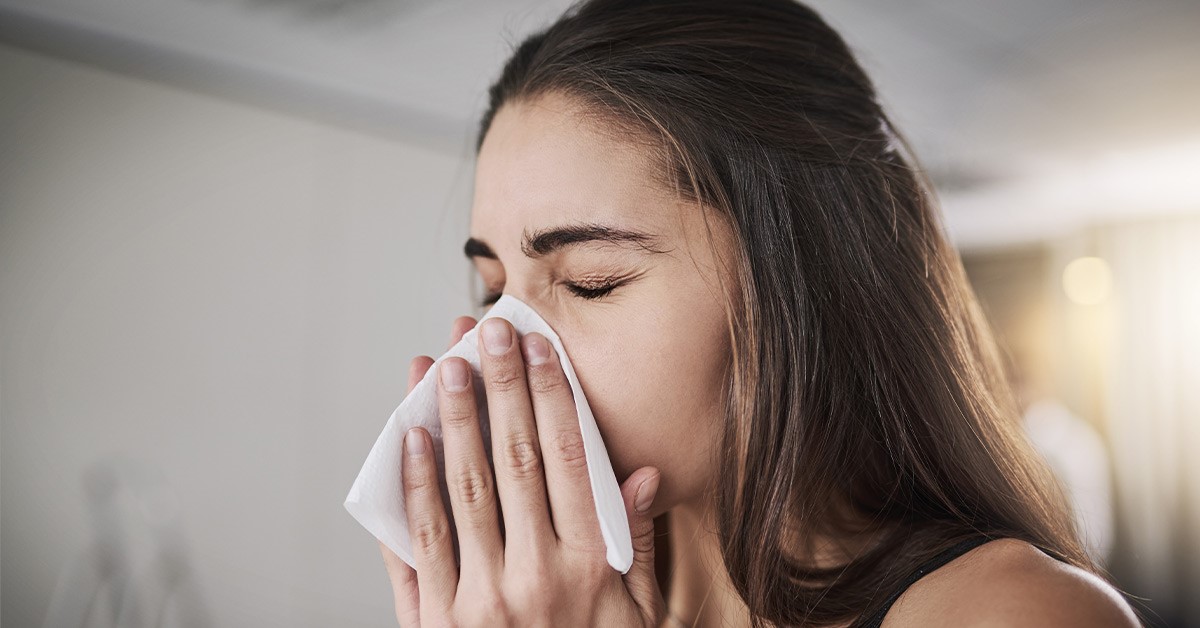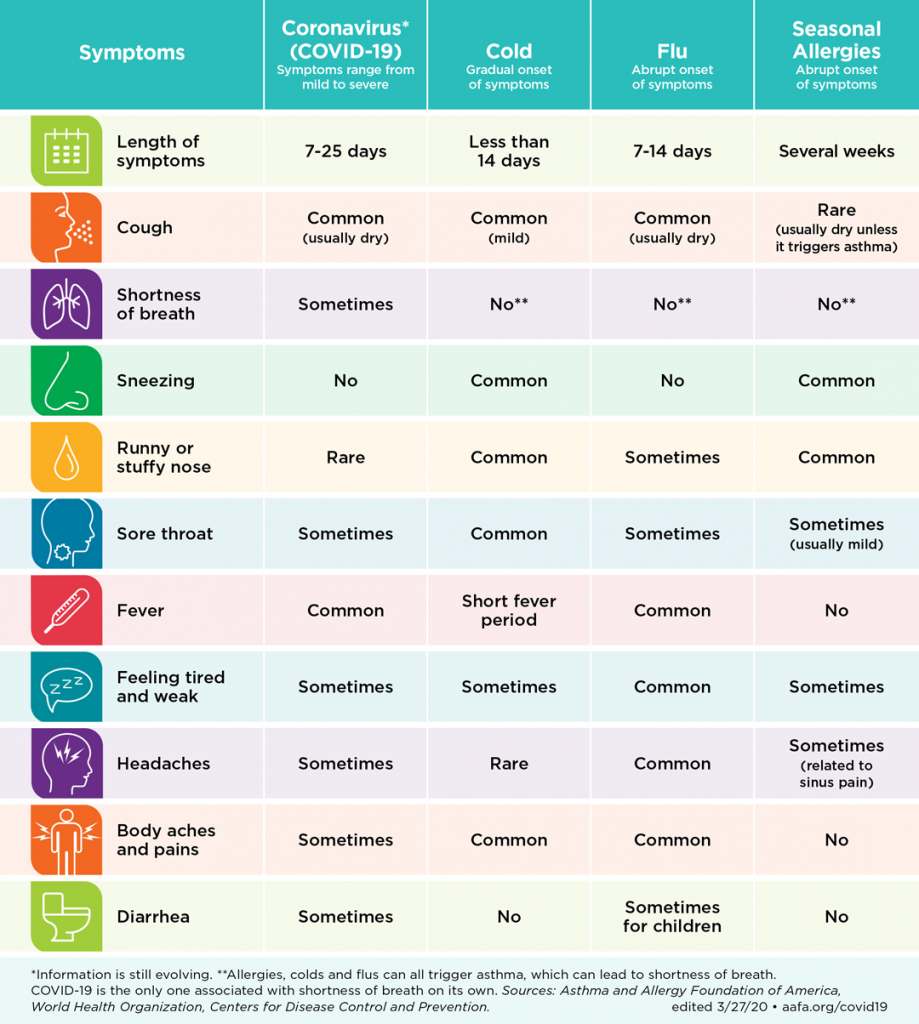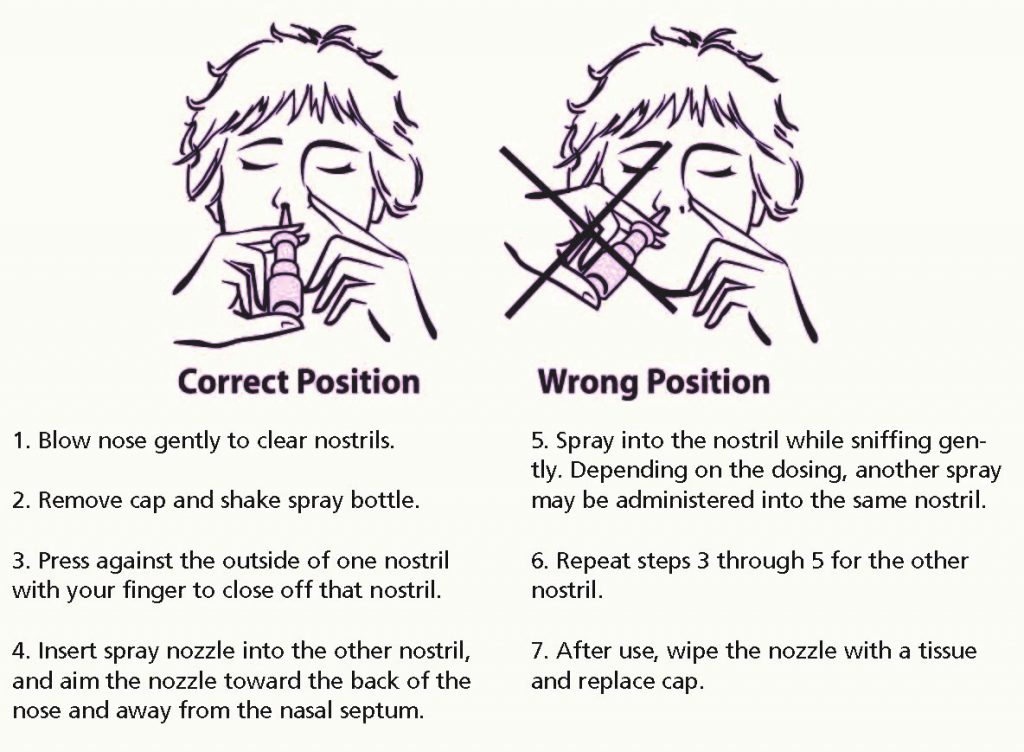Health Articles
Find out more about your health here from our health professionals!

Allergic Rhinitis

Allergic rhinitis is an inflammatory condition that affects the nasal passages, sinuses, ears, and throat. It occurs when the immune system overreacts to the allergens in the surroundings.
There are two types of allergic rhinitis. Seasonal allergy sufferers develop symptoms during spring, fall, or both seasons when they become exposed to airborne pollen and outdoor mold spores. Perennial allergic rhinitis, which is year-around, is caused by indoor allergens such as house dust, pet dander, dust mites, and indoor molds.
DIFFERENCES OF ALLERGIC RHINITIS, COLD, FLU AND COVID

CAUSES OF ALLERGIC RHINITIS
Allergic Rhinitis is always triggered by breathing in the tiny particles of allergens. The common allergens that causes are pollens, dust, smoke, moulds and flakes of animal skins.
SYMPTOMS OF ALLERGIC RHINITIS

The common symptoms of having Allergic Rhinitis includes sneezing, stuffy or runny nose. Sometimes, the eyes also get red, itchy and watery. Swelling of eyes also happen occasionally.
TREATMENT OF ALLERGIC RHINITIS
You can treat your allergic rhinitis in several ways. These include medications, as well as home remedies and possibly alternative medicines.
MEDICATION
Antihistamine
You can take antihistamines to treat allergies. They work by stopping your body from making histamine.
Examples of antihistamine:
– Chlorpheniramine (Piriton)
– Cetirizine (Zyrtec)
– Loratadine (Clarityne)
– Fexofenadine (Telfast)
– Desloratadine (Aerius)
– Levocetirizine (Xyzal)
Nasal Decongestant Spray (Iliadin, Afrin, Oxy-Nase)
This medication is used for temporary relief of congestion in the nose. It works by narrowing the blood vessels in the nose area, reducing swelling and nose blockage.
Do not use more often, use more sprays, or use longer than directed because doing so may increase the risk of side effects. Also, DO NOT use this medication for more than 10 days. If you use it for longer than the recommended period of time, your congestion/nose blocking may get worsen.
Instructions to use Nasal Spray

ALTERNATIVE AND COMPLEMENTARY MEDICINE
Saline Nasal Irrigation
You can do this by using a solution made with sachets bought from a pharmacy such as Neilmed, EMS, Marimer, Sterimar etc.
Nasal irrigation can be carried out as often as necessary, but a fresh solution should be made each time.
Eucalyptus or Menthol Steam Inhalation
Eucalyptus oil extracted from the leaves of the eucalyptus tree, has anti-inflammatory and antibacterial properties.
Using steam to open the passages in the nose can help to relieve sinus pressure. Steam inhalation is easy to do at home. Boil water, pour it into a large bowl, add in some eucalyptus oil or menthol and lean over, so the face is directly above the water. Cover the head with a towel, and breathe through the nose.
Probiotics & Prebiotics
Probiotics are microorganisms that might offer health benefits by helping the body maintain a healthful balance of gut bacteria.
Probiotics may boost a person’s immune system, which can help the body fight off allergies.
Probiotics also increase good bacteria in your gut, which is thought to help regulate allergy cells throughout the body.
Prebiotics are non-digestible oligosaccharides that encourage the growth of probiotic bacteria.
Vitamin C
Increasing your intake of vitamin C can help alleviate your symptoms because this antioxidant counteracts histamine, the substance that can contribute to inflammation, runny nose, sneezing, and other related symptoms.
Omega-3 fatty acids
Because omega-3 fatty acids are essential fats with anti-inflammatory properties, increasing the consumption of these healthy fats can reduce immune dysfunction and help alleviate allergy-related conditions.





